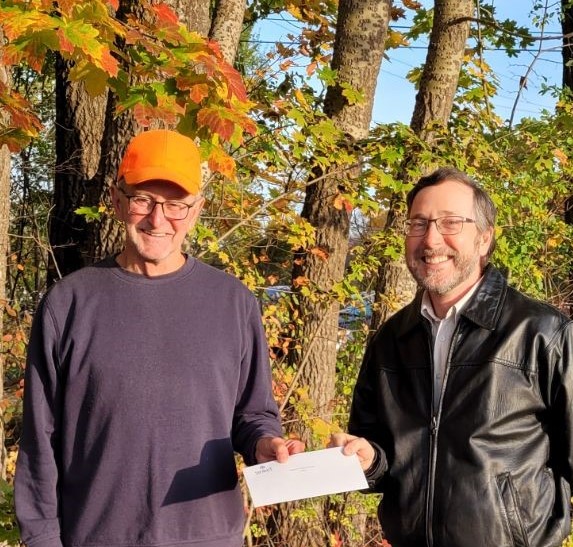This article, published in the Spring 2022 edition of The Beacon, was written by Philip Girvan, StFXAUT Communications Officer.
Wyanne Sandler, former Executive Director of the Antigonish Women’s Centre and Sexual Assault Services (The Women’s Centre), suggests heat poverty as something of a misnomer. Households do not just experience health poverty — there is no choice between “heat or eat” — people are simultaneously cold and hungry.
The relationship between The Women’s Centre and the Antigonish Emergency Fuel Fund (AEFF) is a longstanding one.
AEFF Chair Mike MacDonald, had only recently returned to Antigonish when he attended a lunch and learn organized by The Women’s Centre in the Fall of 2008. Lucille Harper, then-Executive Director of The Women’s Centre, raised the alarm concerning the number of people visiting The Women’s Centre seeking help with high energy costs.
There is no choice between “heat or eat” — people are simultaneously cold and hungry
As noted in the Winter 2018 edition of The Beacon, a community-based Heat Poverty Initiative in Antigonish was organized in September 2008. Supported by a major donation from the Bergengren Credit Union, and a number of smaller individual donations, the Heat Poverty Initiative began helping a number of Town and County households with emergency heat costs, and also launched the Home Winterization Program. This provided window caulking and plastic sheeting to participating households.
The Women’s Centre in-house expertise and their familiarity with area households in need made it the logical site to receive applications. Staff vet these according to certain criteria, including household income level, and applicants are connected to appropriate support. The HEAT Fund is one of these. The provincial Heating Assistance Rebate Program (HARP) is another. Free Home Winterizing kits are another. These are available to those meeting the maximum family income criteria. Low-income households (homeowners and renters) may qualify for free energy upgrades available through a partnership between Trinity Inspection Services and Efficiency Nova Scotia.
The pandemic’s devastating impact continues to linger
Another, of course, is the AEFF. Now at the end of its fourteenth winter season, the AEFF provides emergency financial assistance to low-income individuals and households unable to cover the full costs of heating their homes during the winter months. Last year’s article touched upon ways in which COVID-19 has exacerbated the issue. The pandemic’s devastating impact continues to linger. Recognizing this, the Home Energy Assistance Top-up (HEAT Fund) waived eligibility restrictions concerning the timing of applications. Typically, applicants are eligible to apply only once every 24 months, but those receiving funds in 2020 may also apply in 2021.
Fortunately, steep increases in the price of oil happened later in the season and did not have as severe an impact as they would have had these increases struck at the beginning of Winter. The ongoing shift toward electricity rather than furnace oil being a primary source of heating also helped the AEFF satisfy demand.
Single-parent women and children constitute the largest group among Fuel Fund applicants. A disturbing trend is the rise in applications from single adults, people in their twenties and thirties.
Last fall the StFXAUT once again contributed $1,800 to the AEFF. As in past years, the money went toward the pre-purchase of wood. Sandler and MacDonald noted their gratitude to the AUT Membership.
Others wanting to support the AEFF, may send a donation to Canada Helps. Those seeking assistance should call The Women’s Centre at (902) 863-6221.


